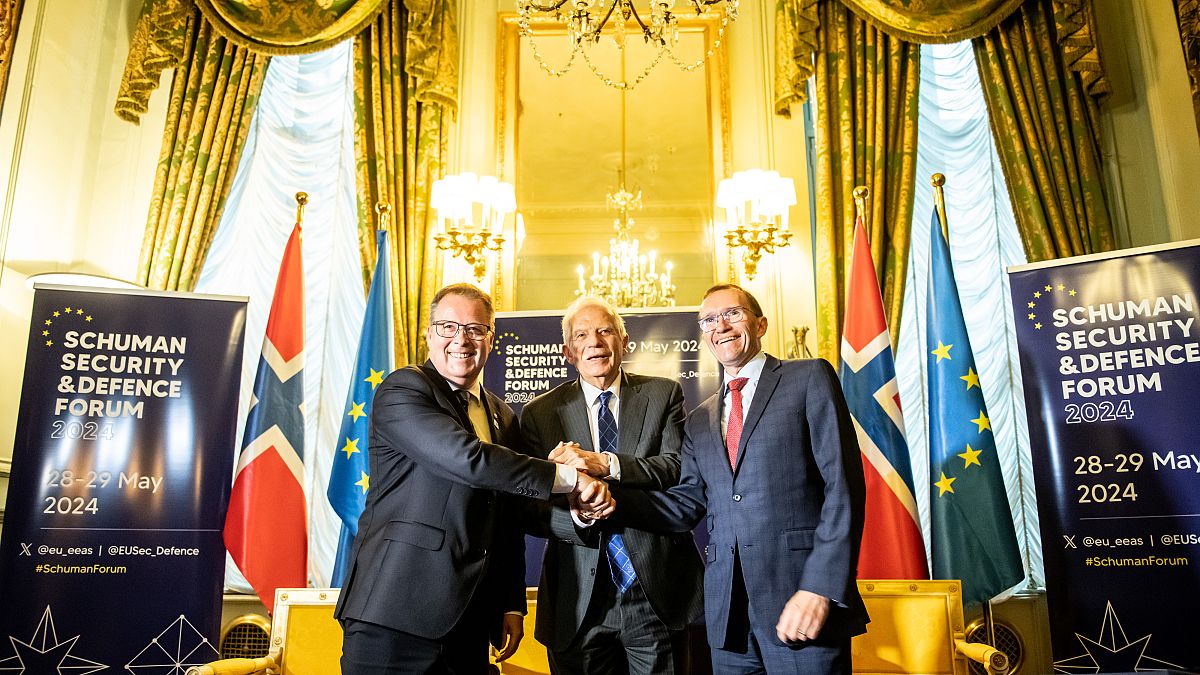The announcement follows deals with Moldova and Norway as the bloc attempts to bolster its military credentials.
The EU has half a dozen more defence deals planned, after signing two with Moldova and Norway in recent days, the bloc’s most senior diplomat said today (29 May).
Brussels is attempting to bolster its military credentials given the Ukraine war and possible second Trump presidency – and the next EU executive, due to take office in November, may well appoint a dedicated defence commissioner.
“Six more are in the pipeline,” EU High Representative Josep Borrell told the Schuman Forum in Brussels, after the bloc signed security and defence deals with Moldova and Norway.
“We want to create a network around the world in order to ensure that all together we can contribute better to the world’s security and peace,” added Borrell, who heads up the EU’s external action service.
That comes one day after he approved a deal with Norway, a NATO member that borders Russia, that will see cooperation in areas such as Ukraine, maritime security and peace mediation.
The deal “will enable us to enhance dialogue on areas of mutual interest”, Bjørn Arild Gram, Norway’s defence minister told the conference. “I think it will strengthen security for all of us.”
With some of its member states studiously neutral, the EU has historically played a limited role on defence matters.
But, with war returning to the continent, and US presidential candidate Trump publicly inviting Russia to invade supposed allies, Europeans are starting to realise they should get their house in order.
Ursula von der Leyen, previously German defence minister, has promised to make the topic a key plank of a hoped-for second term as European Commission President.
Borrell denied that reinforcing EU military policy would undermine arrangements with the US, saying rather that it will strengthen NATO’s European pillar.
A spokesperson for the EU external action service declined to comment on the six candidates for deals, which are normally only announced after signature.
But, further in the future, one candidate could be London, at least after July elections.
Though plans for an EU-UK defence deal were jettisoned amid fractious Brexit talks, Labour leader Keir Starmer, who polls suggest will be elected Prime Minister, has talked of the need to step up security cooperation with the bloc.
EU member state Belgium yesterday signed a security pact with Ukraine, pledging to send €977 million in military aid and 30 fighter jets to the war-torn country.

